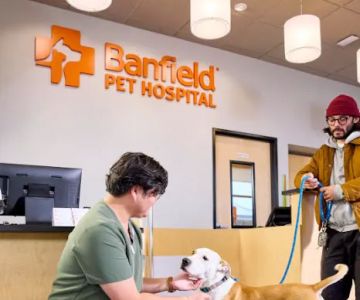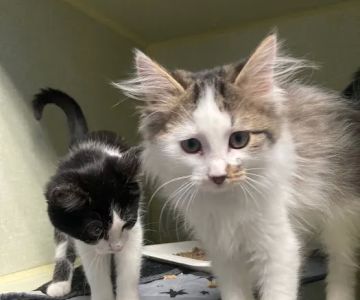Harmful Foods for Pets: What to Avoid for Your Pet’s Health
- Introduction
- Why Certain Foods Are Harmful for Pets
- Common Harmful Foods for Pets You Should Avoid
- What to Do If Your Pet Eats Harmful Foods
- Real-Life Story: A Pet’s Struggle with Harmful Foods
- Conclusion
As a pet owner, one of the most important things you can do to ensure your pet’s health and well-being is to provide them with the right food. While there are many pet-friendly treats and meals on the market, it’s equally important to be aware of harmful foods for pets that could cause serious health issues. In this article, we’ll discuss the foods that can be dangerous for your pet and offer guidance on how to keep them safe from harmful ingredients.
1. Why Certain Foods Are Harmful for Pets
Pets, especially dogs and cats, have different digestive systems than humans, meaning they can’t process certain foods in the same way we do. Many foods that are safe for humans can cause adverse reactions in pets, ranging from mild gastrointestinal issues to more severe problems like organ damage or poisoning.
1.1 Digestive Sensitivity
Pets’ digestive systems are sensitive, and some human foods can irritate their stomachs or cause them to develop more serious conditions like pancreatitis or kidney failure. Foods that are rich in fat, sugar, or salt are especially harmful to pets and can lead to long-term health problems.

5900 Carlisle Pike, Mechanicsburg, PA 17050, USA
See Details1.2 Toxic Ingredients
Some foods contain toxins that can be fatal to pets. For instance, certain fruits, chocolates, and artificial sweeteners can lead to poisoning in pets. Even small amounts of these foods can be dangerous, so it’s essential to understand what’s harmful to avoid any accidents.
2. Common Harmful Foods for Pets You Should Avoid
While the list of harmful foods for pets is extensive, here are some of the most common foods that are toxic or dangerous for pets:
2.1 Chocolate
Chocolate contains theobromine, a substance that is toxic to dogs, cats, and other animals. Even small amounts of chocolate can lead to symptoms like vomiting, diarrhea, rapid heart rate, and seizures. Dark chocolate and baking chocolate are especially dangerous, so keep all forms of chocolate away from your pets.
2.2 Grapes and Raisins
While not all pets are affected by grapes or raisins, they can cause kidney failure in some dogs. It’s not fully understood why grapes and raisins are toxic, but it’s best to avoid giving them to your pet entirely to be safe.
2.3 Onions and Garlic
Onions and garlic, whether raw, cooked, or powdered, can cause severe digestive issues in dogs and cats. They contain compounds that can damage red blood cells, leading to anemia. Even small amounts can be harmful, so avoid giving your pet foods that contain these ingredients.
2.4 Xylitol
Xylitol is an artificial sweetener found in many sugar-free products like gum, candies, and baked goods. This ingredient can cause insulin spikes in pets, leading to low blood sugar, liver failure, and even death. Always check the labels of human food items before sharing them with your pet.
2.5 Avocados
Avocados contain persin, a toxin that can cause vomiting and diarrhea in some animals, especially birds, rabbits, and dogs. While humans can safely eat avocados, they are not safe for pets, and it’s best to keep them out of your pet’s reach.
3. What to Do If Your Pet Eats Harmful Foods
If your pet accidentally ingests something harmful, it's important to act quickly. Here’s what to do:
3.1 Stay Calm and Assess the Situation
First, try to assess how much your pet has eaten and whether it was a dangerous food. If you’re unsure whether the food is harmful, it’s better to err on the side of caution and contact your vet immediately.
3.2 Contact Your Veterinarian
If your pet has eaten something harmful, call your vet or an emergency pet poison hotline for guidance. Your veterinarian may ask you to bring your pet in for treatment or advise you to monitor them for symptoms.
3.3 Follow Treatment Recommendations
Depending on the food your pet has consumed, your vet may induce vomiting, administer activated charcoal to absorb toxins, or perform other treatments. The faster you act, the better the outcome for your pet.
4. Real-Life Story: A Pet’s Struggle with Harmful Foods
John, a dog owner in Charlotte, had an unfortunate experience when his dog, Max, ate a batch of chocolate cupcakes left on the counter. “I didn’t realize the danger until Max started acting strange,” John recalls. “He was lethargic and vomiting. I immediately called the vet, who told me that even a small amount of chocolate could cause serious problems.” Thanks to prompt action and the care of his veterinarian, Max recovered, but John now keeps all food out of his dog’s reach and is much more vigilant about what he shares with his pet.
5. Conclusion
As a pet owner, it’s crucial to be aware of harmful foods for pets and ensure that your furry friends are safe from the risks posed by these ingredients. Educating yourself about toxic foods, staying vigilant about what your pet can and can’t eat, and knowing what to do in case of an emergency are all essential steps in keeping your pet healthy. If you ever have questions about your pet's health or need guidance on safe nutrition, visit Hidden Brook Veterinary for expert advice and support.










